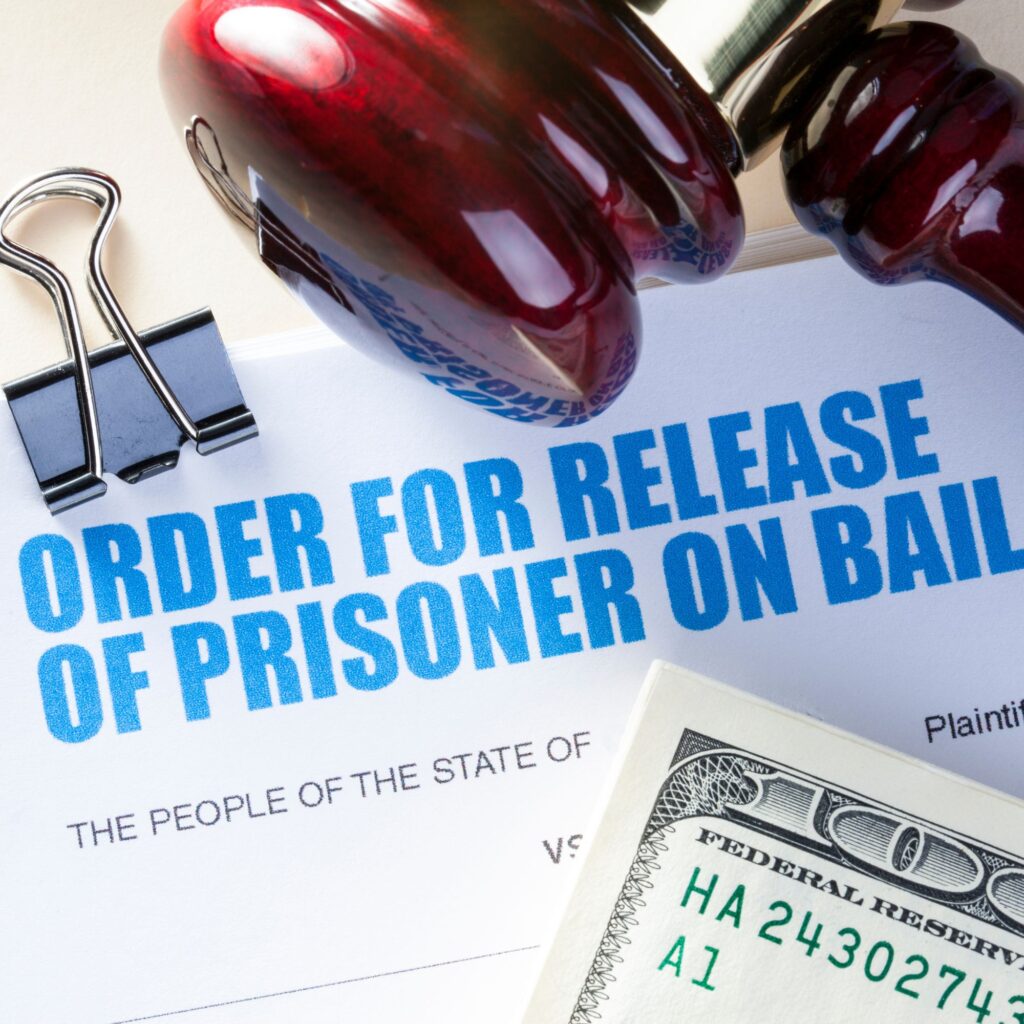Why You Need To Pick Citizen Providers for Bail Bonds Near Me
Why You Need To Pick Citizen Providers for Bail Bonds Near Me
Blog Article
Recognizing the Bail Bonds Refine: What You Need to Know
Browsing the bail bonds process is a necessary aspect of comprehending the more comprehensive legal system for those influenced by an arrest. From the initial stages of establishing bail amounts to the ins and outs of involving a licensed bail bondsman, each step brings considerable effects.
What Is Bond?
Bond is a legal mechanism that allows a private implicated of a criminal activity to protect their launch from safekeeping while waiting for test. This procedure is necessary in stabilizing the civil liberties of the charged with the passions of public safety and security and the judicial system. When a person is arrested, they might be called for to continue to be in prison till their court day unless they can upload bond, which works as a monetary assurance that they will return for their arranged hearings.
The amount of bail collection can differ dramatically based upon a number of factors, consisting of the severity of the alleged infraction, the defendant's criminal background, and prospective flight risk. Bail can take numerous kinds, such as money, property, or a bail bond given by a qualified bondsman. The latter option permits people to pay a portion of the bail total up to a bondsman, who after that presumes obligation for the total bond amount.

How Is Bail Set?
The process of setting bail involves several key considerations that show the nature of the claimed crime and the offender's conditions. Juries analyze numerous variables, consisting of the intensity of the criminal activity, prior criminal background, flight danger, and ties to the community. Generally, much more serious charges, such as felonies, might cause greater bail amounts compared to offenses.
In several territories, bail routines provide a guideline for establishing bond amounts based on the specific costs. Nevertheless, judges retain discernment to drift from these routines based on specific situation details. If an offender presents a considerable flight threat or has a history of falling short to appear in court, a court might set a greater bond or reject it altogether.
A judge might consider the accused's capacity to pay bail and the potential effect of bond on their work and family. Recognizing these elements can aid accuseds and their households prepare for the bail setting procedure efficiently.
Duty of Bail Bondsmen
When a judge sets bond, not all defendants can afford to pay the full amount upfront. In such cases, bail bondsmen play an essential function in the judicial process. Bail Bonds Near Me. A bondsman is an accredited expert who offers a monetary guarantee to the court in support of the defendant, permitting them to safeguard their launch from wardship while waiting for test
Usually, the bondsman charges a non-refundable fee, generally a percent of the overall bail amount, which acts as their revenue for the reference service provided. This cost differs based on jurisdiction and the bondsman's plans. When the fee is paid, the bail bondsman articles the bail with the court, enabling the offender to be released.
In addition to economic help, bail bondsmen often check the accuseds, ensuring they abide with court appearances. If the defendant stops working to appear, the bail bondsman can capture them and recoup the bail amount, alleviating their financial threat. Therefore, bail bondsmen play a crucial function in stabilizing the rate of interests of the judicial system with the needs of people who might not have immediate accessibility to cash bond.
Responsibilities of Co-signers
Co-signers hold substantial responsibilities when assisting an accused in safeguarding a bail bond. Failing to do so can result in economic repercussions, including the forfeit of the bond quantity.
Additionally, co-signers are generally accountable for the monetary danger linked with the bail bond. If the offender falls short to show up, the co-signer might be called for to pay the complete bond quantity, which can be significant. It is vital for co-signers to analyze their economic capacity prior to accepting this responsibility.
Furthermore, co-signers ought to be prepared to supply collateral to protect the bail bond. This collateral can take the form of building, lorries, or various other useful possessions, which may be seized if the offender does not accomplish their commitments.
The Bond Bonds Process Steps
Understanding the duties of co-signers is essential as one browses the bail bonds process. When an individual is jailed and a bond amount is established by the court, the process generally starts. If the accused can not manage to pay the bail straight, they might seek the aid of a bondsman.
The primary step includes contacting a qualified bail bondsman that will evaluate the scenario. The co-signer, typically a member of the family or buddy, have to offer individual info and economic details to show their ability to accomplish the bail arrangement. Once accepted, the co-signer must authorize an agreement, which details the terms of the bail bond.
Complying with the finalizing, the bondsman will certainly upload the bail quantity with the court, securing the launch of the charged. It is vital for the co-signer to recognize that they are financially in charge of the complete bail read this post here quantity if the charged fails to appear in court.
Final Thought
In final thought, navigating the bail bonds process involves understanding the intricacies of bond, the duty of bond bondsmen, and the duties of co-signers. By understanding each part, people can make educated decisions, helping with a smoother interaction with the lawful system and decreasing possible economic consequences connected with bail obligations.
Bond can take different types, such as cash, home, or a bail bond offered by a certified bail bondsman. The last choice enables individuals to pay a percent of the bond amount to a bondsman, that after that assumes responsibility for the complete bail amount.

Report this page